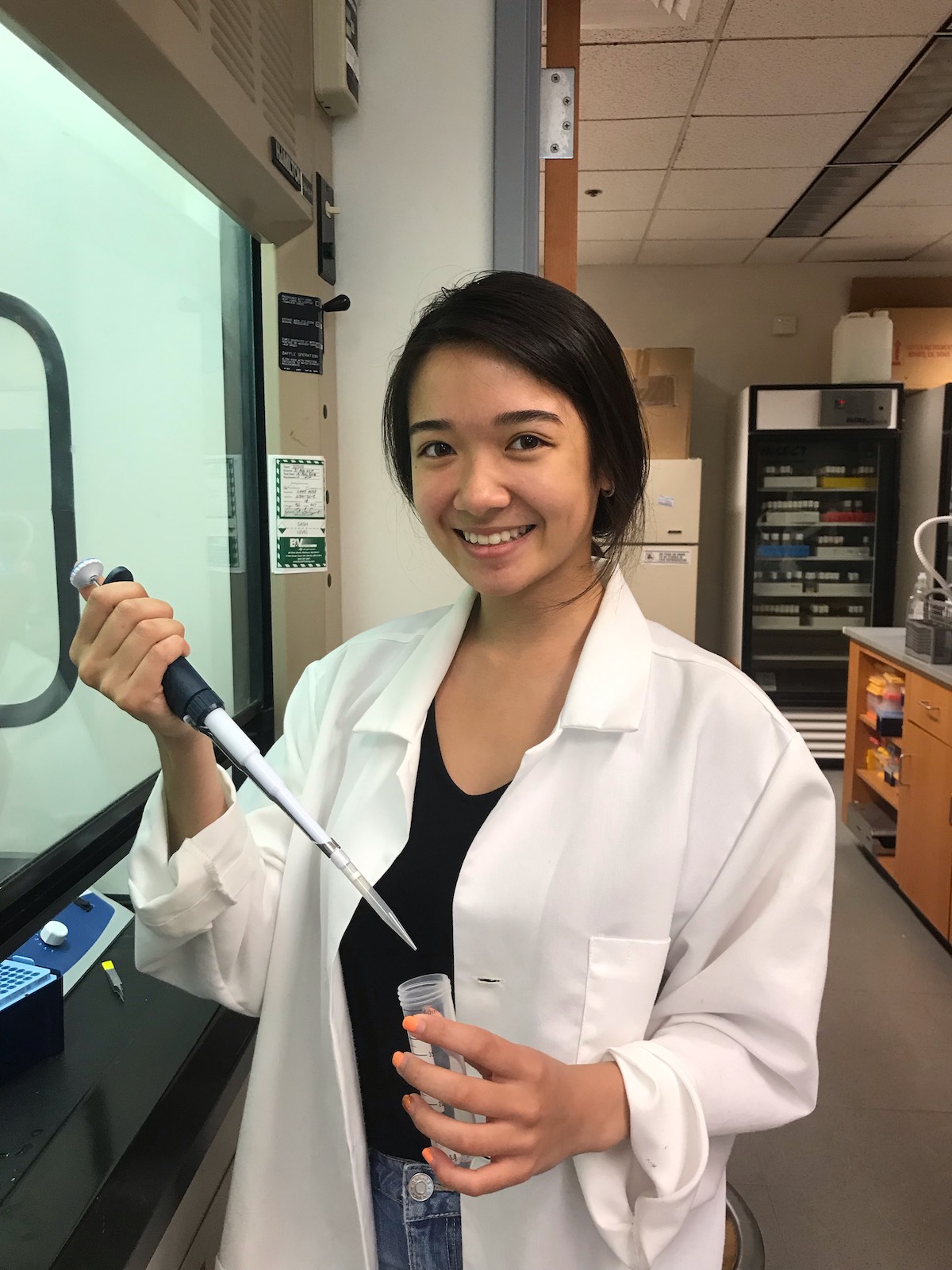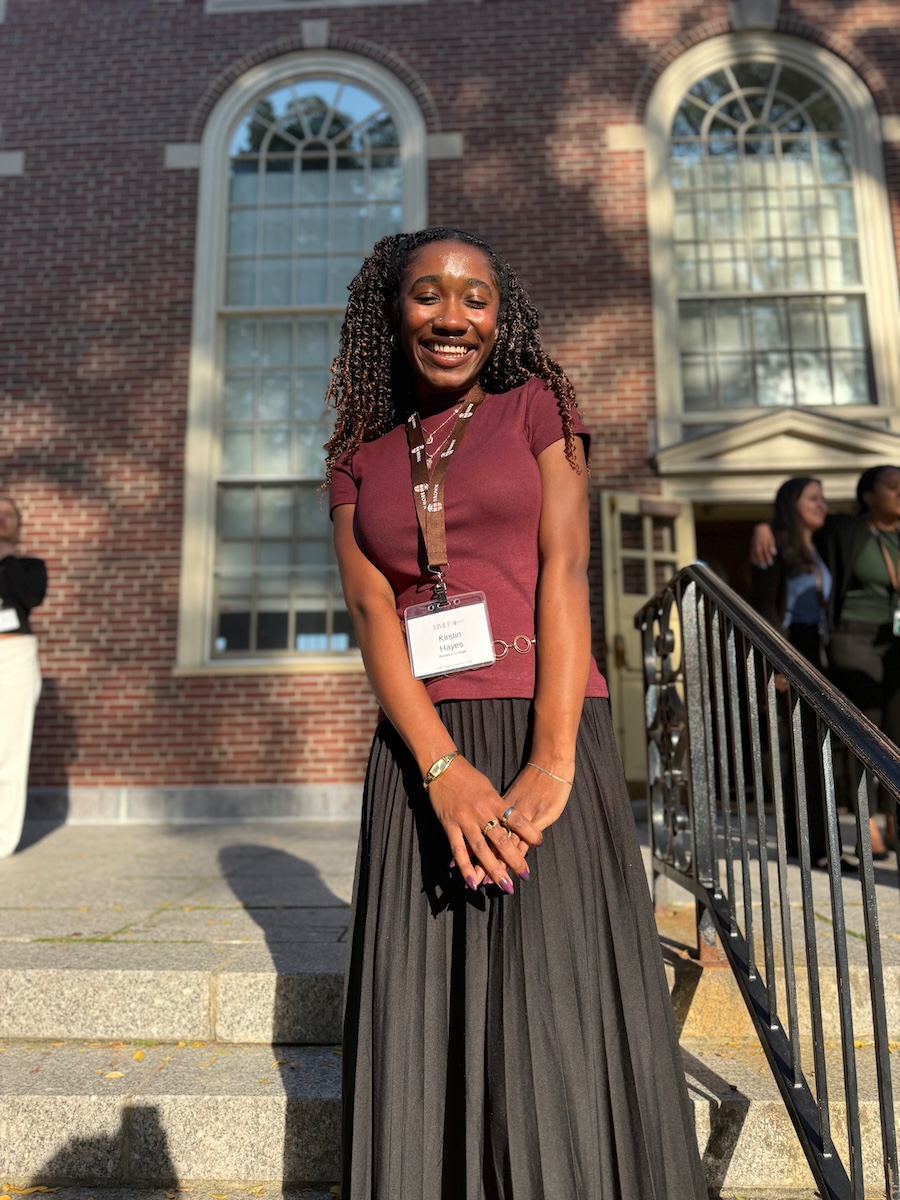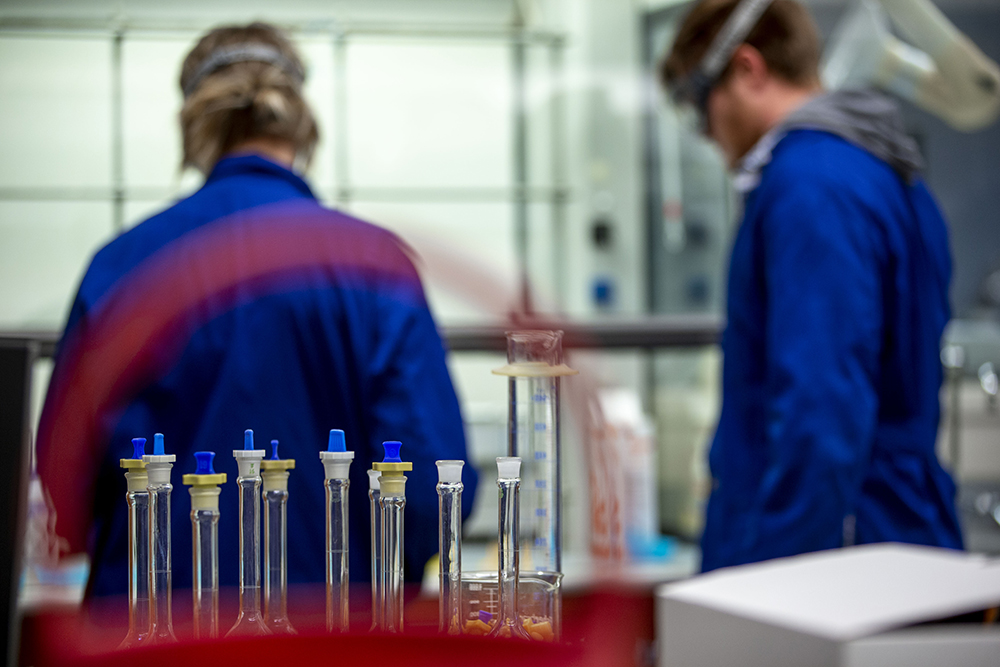Fixing a Mutation, Bethany Thach ’21 Attempts to Restore Eyesight in Flies
By Rebecca Goldfine
One of this summer's research assistants is Bethany Thach ’21, who is part of the lab of Jack Bateman, Bowdoin's Samuel S. Butcher Associate Professor in the Natural Sciences.
She's trying to dig deeper into a finding made by another student and Bateman, who earlier developed a mutation in a Drosophila fruit fly that had a surprising outcome. "The axons in the eye didn't fully form and didn't connect to the optic lobe of the brain," Thach said.
In other words, the mutation probably causes blindness in flies. Thach is trying to repair the fly's neural network to restore the gene, and presumably, its eyesight.
But Bateman urges we not get overly excited that Thach is about to discover the cure for blindness. "You can spin this to say that the flies are blind and we're trying to cure them," Bateman said with a laugh, "but from my perspective, there are neurons that don't know where they're supposed to go, and we think it's because they've lost a specific gene—and we want to confirm that by putting the gene back."
To attempt this repair, Thach is breeding mutant flies that have a deletion in the EYA gene (eye-absent gene) with another fly with a powerful regulator gene. The idea is the flies' progeny will be able to fix the damaged EYA gene with the regulator gene they also inherit.
Thach is trying a few different variations on the theme. "We're doing one where we're trying to express the EYA gene in the neurons instead of the cells of the eye. That gave us some results, but it wasn't a full rescue," she said. "But we're getting there!"
This kind of work—and all of the work in Bateman's lab—is what is known in the scientific world as "basic science," as it is helping to crack unsolved mysteries and open up more of the world to our understanding.
This summer is the first time Thach has conducted research in a lab—and she loves it. "I'm having a great time! Everything we've been doing has been so fun," she said, from dissecting larvae to analyzing results. Her longterm plan is to attend medical school.
Many of the students who have positions in Bowdoin faculty's labs express interest in attending medical school. Bateman says working in a research environment like his is good training for medicine.
"You need to be analytical, you need to be critical—to know a good experiment from a bad experiment," he said. "You need to troubleshoot when things go wrong. You need to have a very specific understanding of each and every step of what you're doing, all in the context of understanding the biology, what is known and what is unknown in the system. And that type of thinking is so applicable for medicine."



